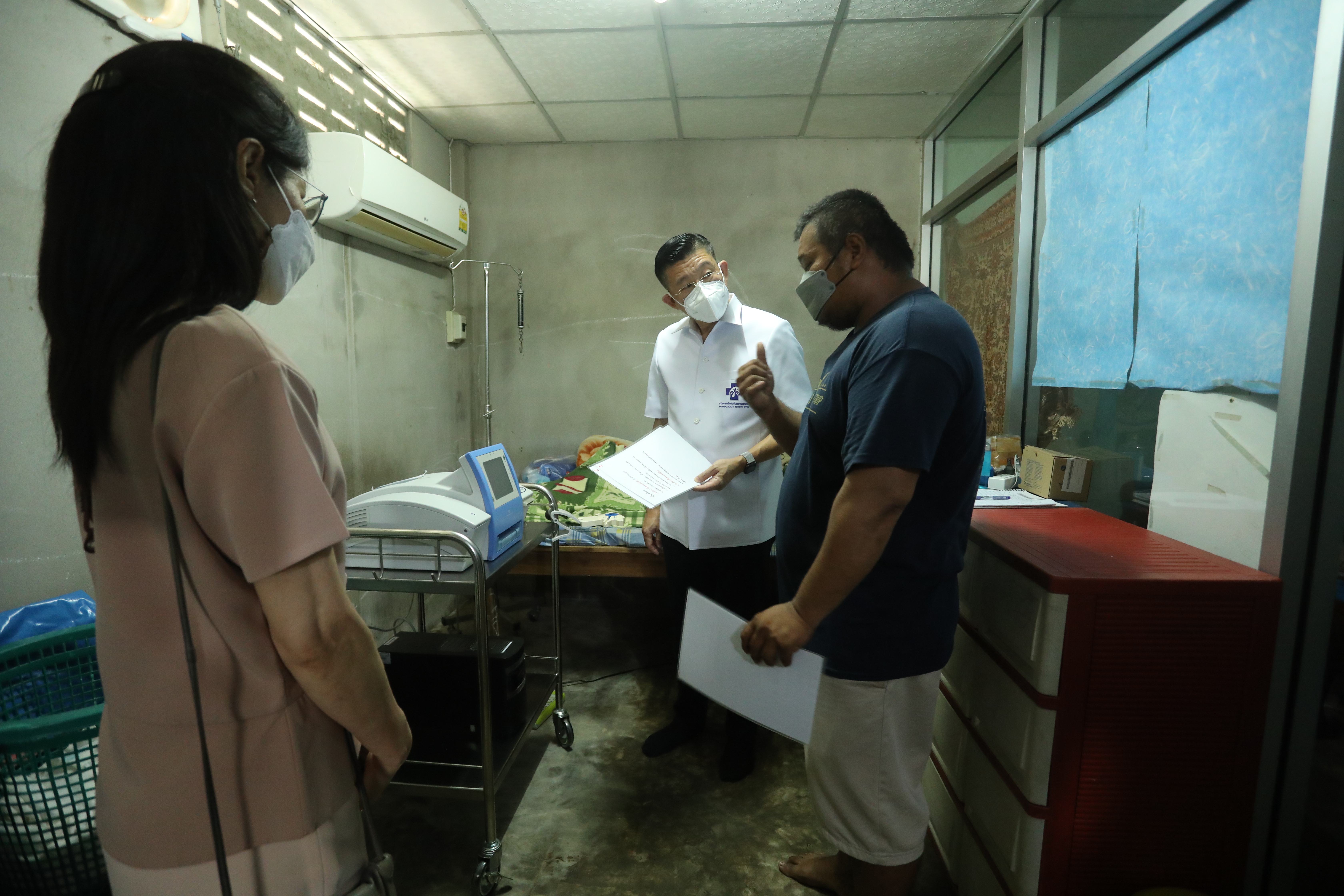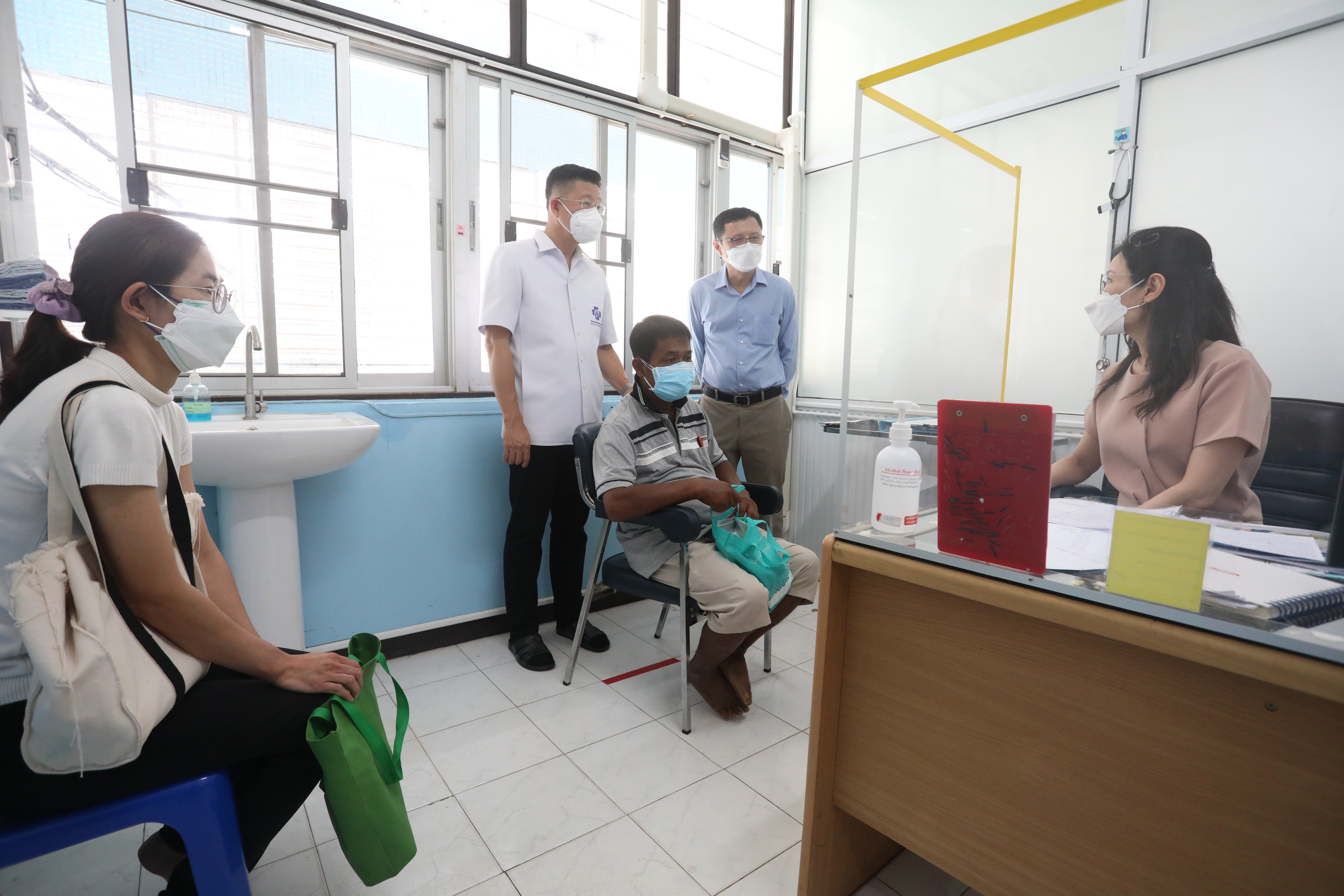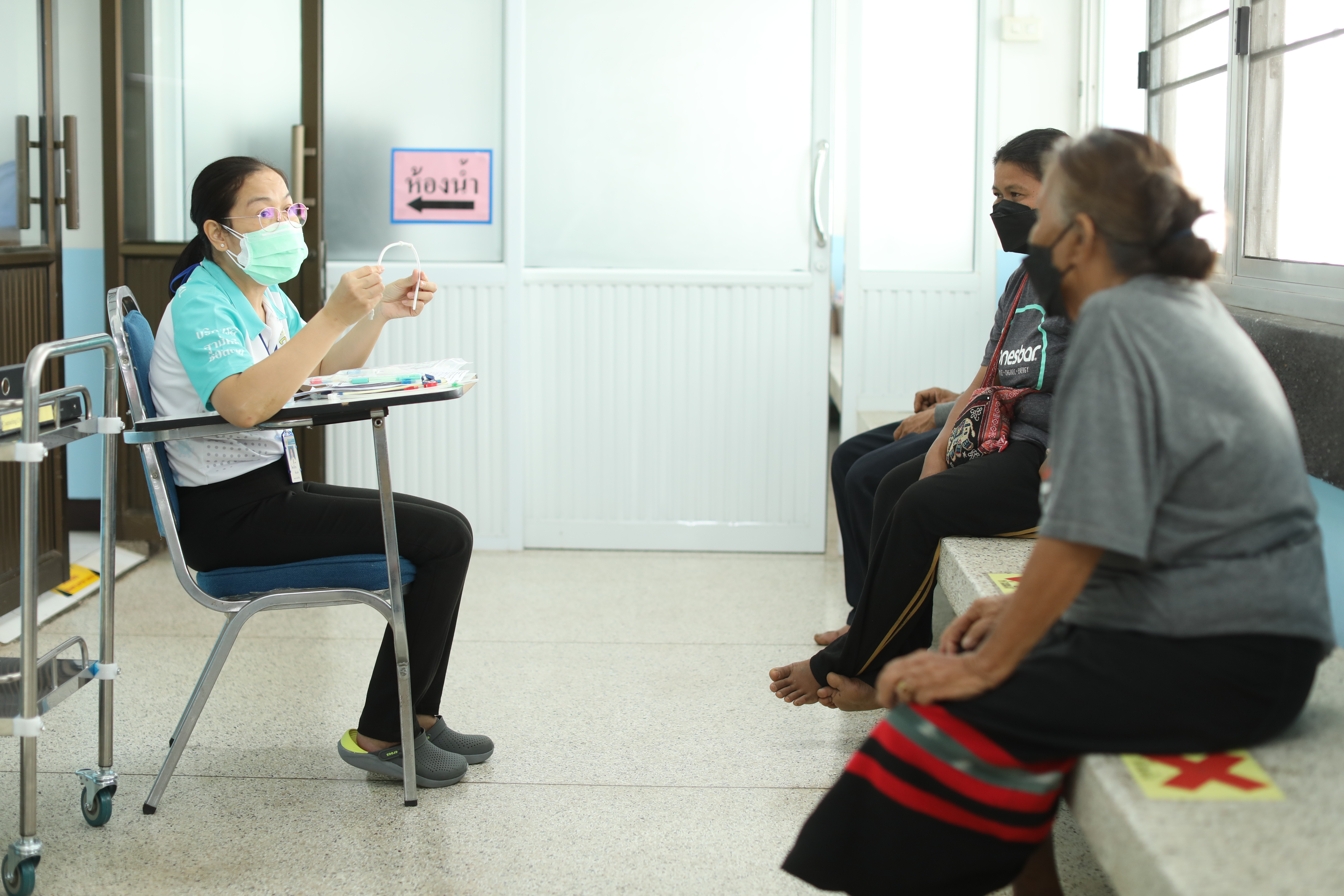
- Home
- DescriptionNews
Access to renal replacement therapy saves lives and reduces financial burden for patients

Access to renal replacement therapy saves lives and reduces financial burden for patients
People's access to renal replacement therapy improves the life quality of patients living with chronic kidney disease and reduces financial burden for their families.
Thailand is one of the Southeast Asian countries with the highest prevalence of kidney disease.
The Nephrology Society of Thailand estimated that 17.5% of the Thai population, or around one million people, has kidney disease in different stages.
Concerning the high prevalence of kidney disease, the National Health Security Office (NHSO) has included renal replacement therapy in the benefits package of the Universal Coverage Scheme (UCS).
The therapy covers Continuous Ambulatory Peritoneal Dialysis (CAPD), Haemodialysis (HD), and erythropoiesis-stimulating agents (ESAs).
Patients can receive the treatment without paying out of their pockets.
Nearly 63,700 people living with final-stage kidney disease are covered by the UCS.
Around 52% of them receive CAPD, 38% HD, and the rest receive both HD and erythropoiesis-stimulating medication.
.jpg)
Dr.Apichat Rodsom, the NHSO Deputy Secretary-General, said that his organization had allocated 9.7 billion baht for kidney disease treatment in 2022.
In the past, doctors decided on the methods of therapy for patients. But since Feb 1, the NHSO has introduced a new system in which patients can choose the methods in collaboration with doctors.
“In this way, we will respect the patients' rights. It also helps the doctors decide the right methods that fit the patients’ and their families’ contexts and lifestyles,” said Dr Athaporn.
Equally effective
Many people are not aware of their kidney problems because the symptoms may not appear during the early stage of the disease.
Once the symptom is shown, the kidney may be damaged at a point of no return.
Patients will then need long-term renal replacement therapy which is costly and time-consuming.
Each year, around 20,000 people are diagnosed with end-stage kidney failure and start the therapy.

Dr Surasak Kantachuvessiri, President of the Nephrology Society of Thailand, said that both CAPD and HD are equally effective in treating end-stage kidney failure.
The choice of therapy methods depends on the patients’ health condition, symptoms, lifestyle and home environment.
For example, HD is appropriate for patients with chronic heart disease, whose low blood pressure put them at risk of having irregular heartbeats when operating CAPD.
Automated peritoneal dialysis (APD) may not fit elderly persons having vision problems and not having caretakers.
Doctors will likely encourage them to choose HD which is operated under the guidance of hospital staff.
Patients treated with CAPD may continue the same-method treatment if they have never experienced abdominal infection and defective abdominal walls.
Currently, around 800 health units around Thailand provide HD services. As the number of patients living with kidney disease increase annually, Dr Surasak suggested that the demand for nurses and doctors specializing in kidney disease will increase too.
" Ministry of Public Health shall invest more in human resources. The availability of health staff will ensure the standard and safety of renal replacement therapy,” he said.
Reduce financial burden
Uttaradit Hospital in northern Thailand is one of the public health units that provide renal replacement therapy to patients living with chronic kidney disease.

The hospital director Dr Ayus Phamarapha said that the discussion relating to the choice of therapy methods was discussed between doctors and patients before the start of the treatment.
For patients choosing CAPD, the hospital staff will provide training to both patients and family members on performing the treatment at home.
They will also learn about safety and hygiene, which is necessary for preventing infections while performing CAPD.
In general, patients will likely get abdominal infections after 24 months of having self-treatment at home.
But the patients under the Uttaradit Hospital’s care get infections after 43 months, showing that the hospital's staff support reduces the risk of infections.
Autsadetch Charoenphol, a son of a 62-year-old patient living with chronic kidney disease, said that the access to renal replacement therapy under the UCS helped his mother survive without forcing financial burden on his family.
His mother, under the care of Uttaradit Hospital, was diagnosed with end-stage kidney failure in 2012 and has been treated with CAPD since then.
“At that time, we didn’t have another choice. HD had not been included in the UCS, and we couldn’t afford HD as it cost around 1,500 baht per treatment,” recalled Autsadetch.
.jpg)
“Each patient requires between two and three times of hospital visits in a week. I couldn’t take my mother to the hospital regularly because of my job.
Performing CAPD at home fit my life context and income level at that time.”
The hospital staff has supported to his family by sending dialysis solutions via post to his address.
Even though his mother can switch to HD because it’s free now, both of them decided not to because of travel requirements.
///////////////////

